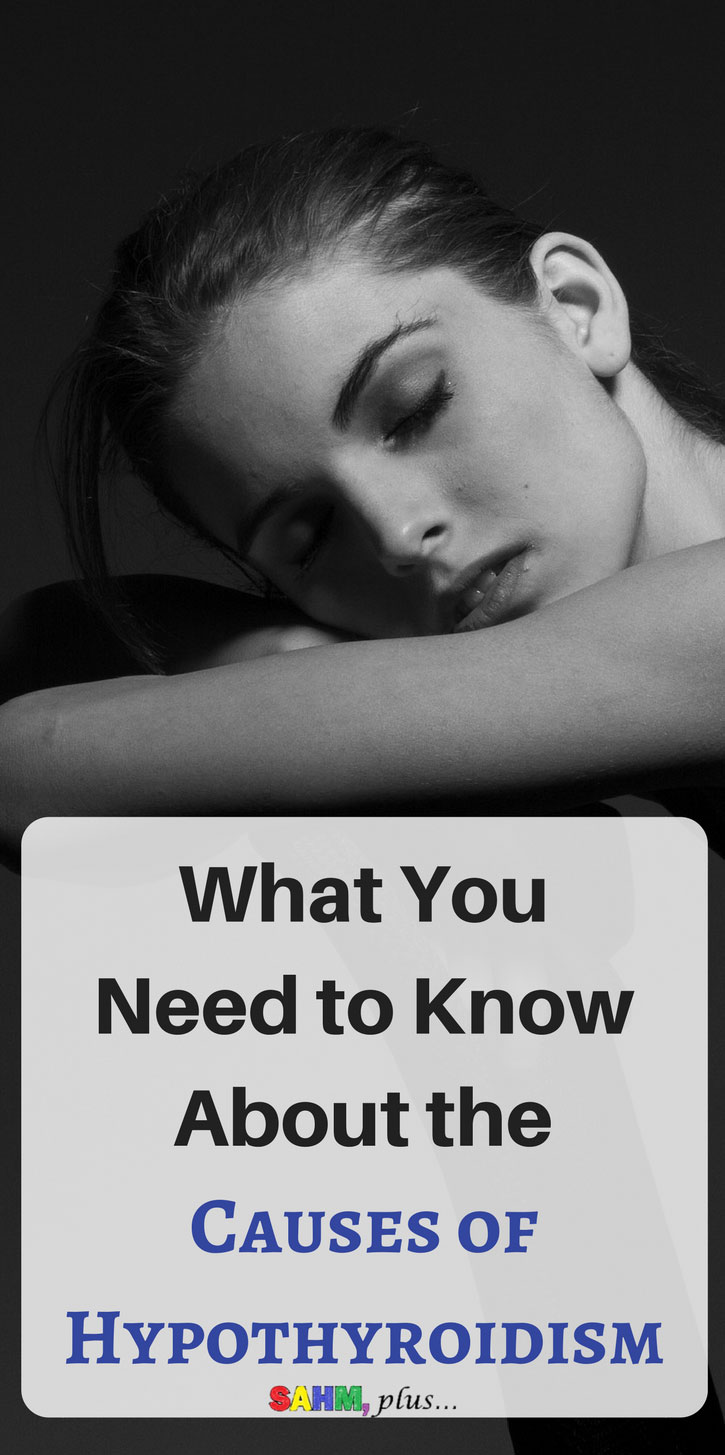An under-active thyroid gland has many signs and symptoms. Fatigue, hair loss, and dry skin may be just a few signs one would begin to suspect low-functioning thyroid. If you believe that you may have hypothyroidism, it’s essential to have lab work done for a proper diagnosis.
After having trouble receiving diagnosis and effective treatment, I quickly came to realize there was more to hypothyroidism than poor function. Simply treating hypothyroidism wasn’t working. It was important I found out what causes hypothyroidism. Then, with the right doctor, I was able to get my entire cases treated specifically for my personal needs. In my case, Hashimoto’s Disease and leaky gut were two reasons that simply treating hypothyroidism wasn’t enough.
For that reason, I suggest you always look to have more thorough testing done. Don’t know what tests you need for proper hypothyroidism treatment? You can read more about that from last week’s post, here. Find out what, if anything, is the cause of your hypothyroidism so that you may be treated properly! Also, understand that I am not a doctor. I simply share some of my knowledge as a patient who has researched to better advocate for appropriate treatment of my own Hypothyroidism (including Hashimoto’s Thyroiditis).

What causes hypothyroidism?
The physiological cause is related to an insufficient amount of thyroid hormones being produced by the thyroid gland. But, what underlying health issue actually causes hypothyroid?
4 Common causes of an underactive thyroid are listed below:
Hashimoto’s Thyroiditis:
Hashimoto’s Thyroiditis is inflammation of the thyroid. Inflammation is the redness, and swelling you see and feel when you have a sliver in your finger, for example. In the case of Hashimoto’s Thyroiditis, the inflammation is caused by antibodies attacking your body’s thyroid.
When your body attacks its own tissues and organs, this is called an “autoimmune disease.” Your body’s immune system is designed to attack bacteria and other germs. However, sometimes it goes awry and attacks itself. In this case, your immune system attacks your thyroid.
Hashimoto’s Thyroiditis appears to be a more common problem in women than men.
According to Mayo Clinic, Hashimoto’s Thyroiditis is the most common cause of hypothyroidism in the U.S.
Congenital Hypothyroidism:
A baby born without a thyroid, or with one that doesn’t function property is said to have congenital hypothyroidism.
Generally, if not dealt with early enough, you would see growth and intellectual delays.
Thyroid Cancer:
According to the America Cancer Society, in 2017 women are at greater risk of thyroid cancer than men. When someone has cancer of the thyroid, it has to be surgically removed. As a result, his/her body can no longer produce thyroid hormones.
Treatment of thyroid cancer is the surgical removal of the thyroid. As a result, the person’s will no longer produce thyroid hormones.
Treatment of Graves’ Disease
Graves’ Disease is a severe form of hyperthyroidism. This differs from hypothyroidism in that the body’s processes speed up, due to overproduction of thyroid hormones.
Usually, radioactive iodine treatment or removal of the thyroid gland is to blame, in this case.
Other Causes of Hypothyroidism
Disease of Pituitary Gland or Hypothalamus
The pituitary gland and hypothalamus are both found in the brain. The thyroid is controlled by the pituitary gland and hypothalamus, which both secrete hormones dictating the thyroid to secrete its hormones. If either isn’t working correctly (such as a tumor of the pituitary), then the thyroid will not be capable of doing its job.
According to the Merck Manual, Hypopituitarism is a rare disorder. In an article by You & Your Hormones, they state:
At any given time, between 300 and 455 people in a million may have hypopituitarism. A number of endocrinologists believe that hypopituitarism is quite common after brain injuries. If this belief is confirmed, then hypopituitarism may be significantly more common than previously believed.
Iodine deficiency
Your thyroid uses Iodine in the production of thyroid hormones. Due to the high consumption of iodized salt in our diets, an Iodine deficiency is rarely a problem in the United States. However, if you’ve tried cutting back on your salt intake, or do not regularly consume iodine, Iodine deficiency may be what causes hypothyroidism in your case. It wouldn’t hurt to rule this out if you’ve limited your salt intake.
If this is the case, try to replace your iodine intake with natural, non-commercial sources of iodine like those available from sea vegetables.
Side effects from certain medications
Certain medications wreak havoc on the thyroid. One such culprit is Lithium. It is used to treat mental illnesses, such as bipolar disorder. While Lithium is important for those suffering from mental illness to live more complete lives, it also increases one’s risk of hypothyroidism. Lithium somehow inhibits the release of thyroid hormones.
It is recommended to have your thyroid function monitored if you’re on this kind of medication.
Thyroxine (T4) that is not converted into the active T3 hormone in your body
Though this may be a controversial topic for physicians, T4 to T3 conversion may be an issue. There are physicians who do support this position, so it’s good to know about this possibility going into your thyroid health journey.
In summary, there are a variety of causes for hypothyroidism. This post should help you narrow down, what, if any, tests you should consider for the best treatment of your thyroid. Proper treatment of your thyroid will also help you get back to living a fulfilling life.


1 comment
Hi Ivy B!
I ready daily your posts, i really get some thing new in your posts everyday. Thanks for contributing in this topic to help out me.
Comments are closed.